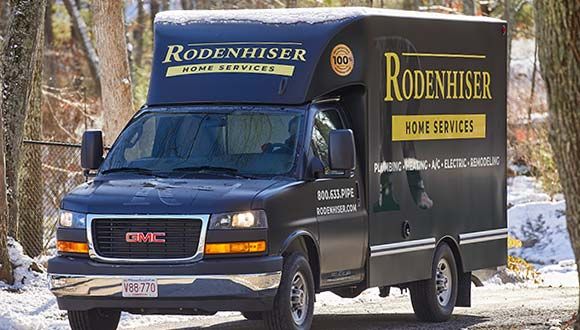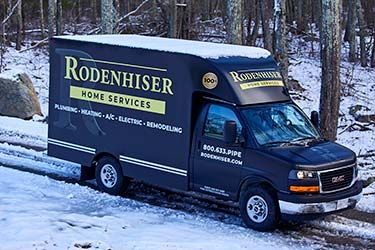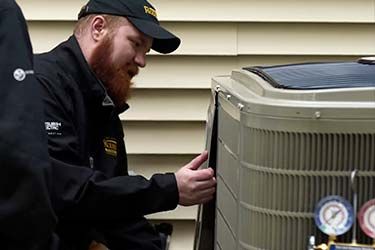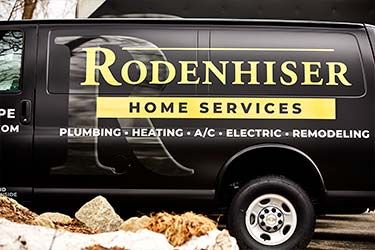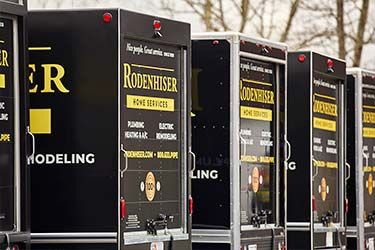
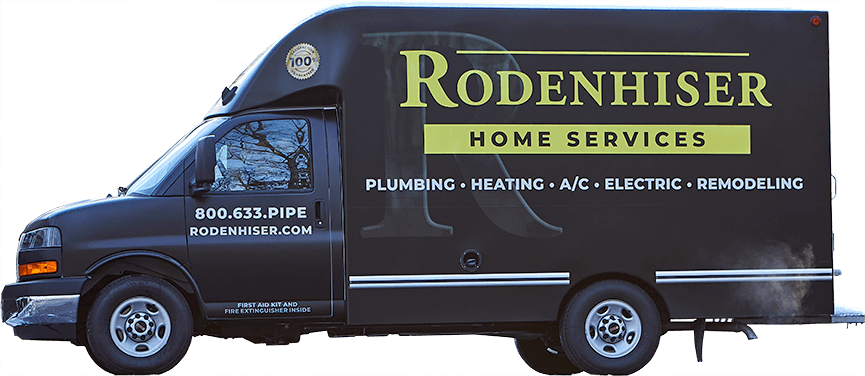


If your air conditioner’s doing its job on humid Massachusetts summer days, it’s taking many gallons of water vapor out of the air every 24 hours. So if your home air conditioner leaks, we’re not talking minor dribbles — it’s a serious problem that can cause major water damage.
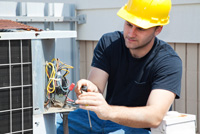
The drip pan underneath the air handler catches condensate and conveys it down a drain line into your home’s sewer system. Malfunctions like a plugged drain can quickly turn into overflows. Because the air handler can be typically installed in an attic, closet or some other unseen location, many gallons of water may spill before the problem is noticed. Costly damage to the structure of your home or possessions may result.
Prevention is the best way to handle air conditioner leaks. Here are a few things you can do to solve this problem before it happens.
Serving the Route 495/128 region since 1928, Rodenhiser Plumbing, Heating & Air Conditioning maintains dependable all-season comfort for local homeowners. Call us about dealing with potentially damaging air conditioner leaks before they happen.
Our goal is to help educate our customers about energy and home comfort issues (specific to HVAC systems). For more information about air conditioners and other HVAC topics, download our free Home Comfort Solutions Guide.
Image via Shutterstock.com





Both Alex and Patrick were knowledgeable, courteous, and professional. They made a change that might have solved the recent problem and have structured a more complete solution. We agreed to this...
Mike was thorough, thoughtful and considerate. Covered their shoes before entering, surveyed my issue and provided an explanation of the services and costs. Great Job!
Alex did a great job providing an explanation of the services provided and went out of his way to offer assistance/advice on other issues outside of our scheduled maintenance visit.
Brian did an excellent job inspecting our 18-year old boiler and replacing some of the accessory hardware that needed it, he also adjusted the outgoing hot water settings for our radiators and...
Rodenhiser is my one stop shop!!! They take care of my HVAC, electrical, and plumbing issues & are always helpful addressing any questions I may have about the systems in my house! Everyone...
Chris G. and Nick V. showed up bright and early at 8am to fix my water heater issue. They were on time, polite and were able to fix an issue that has been plaguing my house for a good year. They...
When you are looking for plumbing, electrical, heating or air conditioning in the Route 495 / 128 area, you will be delighted that you called Massachusetts' trusted choice since 1928.
With a total dedication to professional workmanship and excellent service, discover why families and businesses continue to trust Rodenhiser after generations of service
